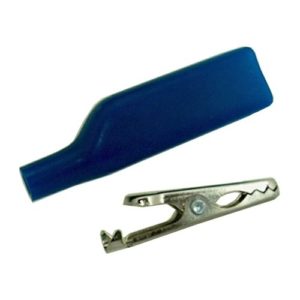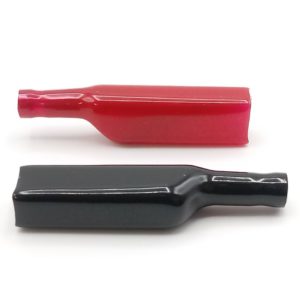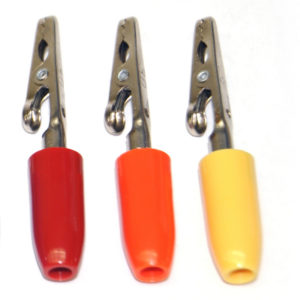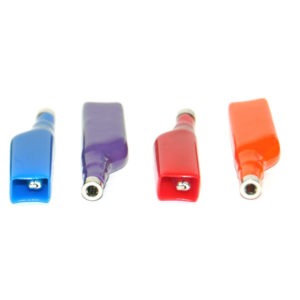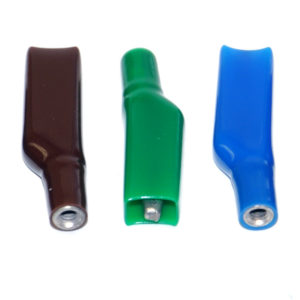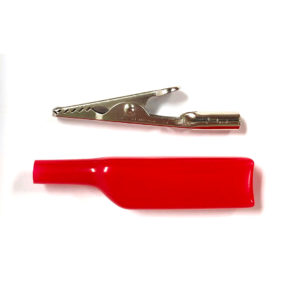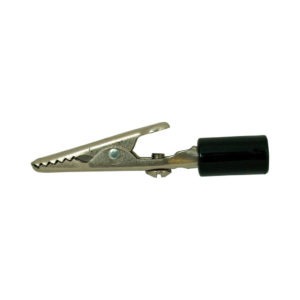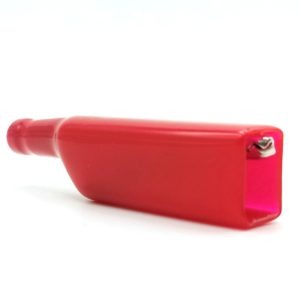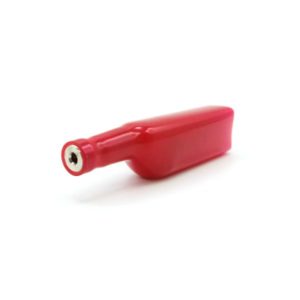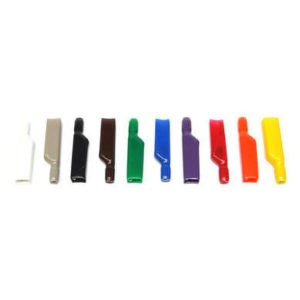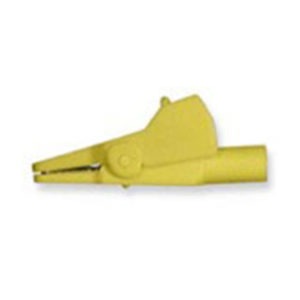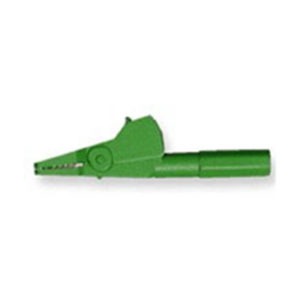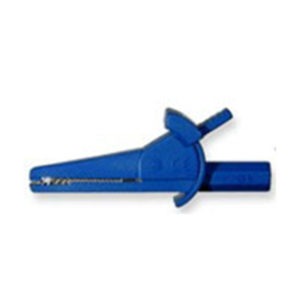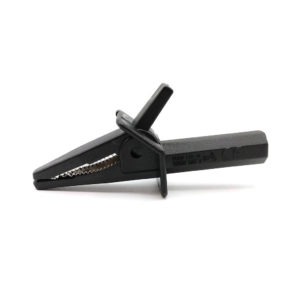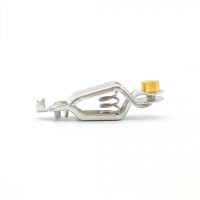
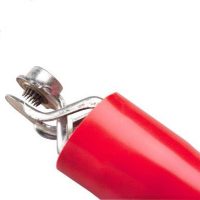
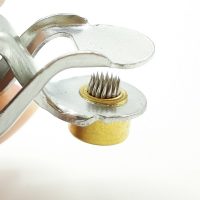
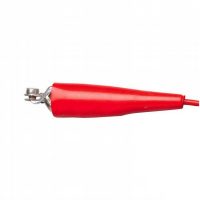
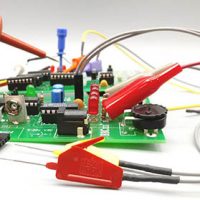
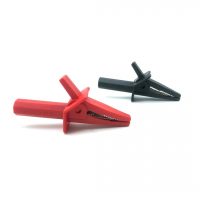
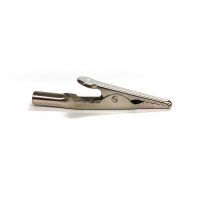
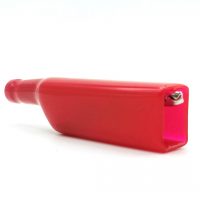
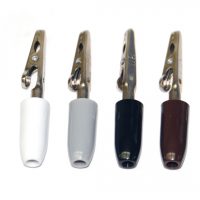
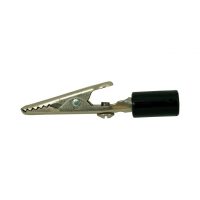
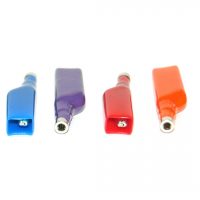
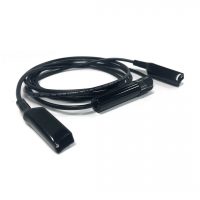
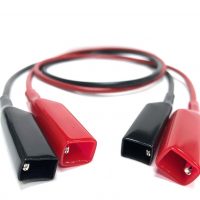
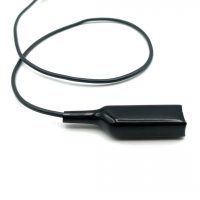
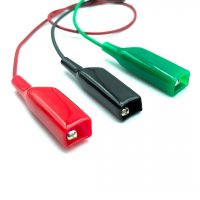
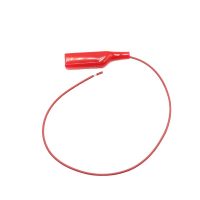
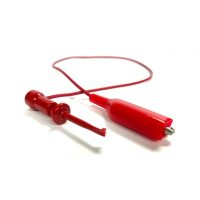
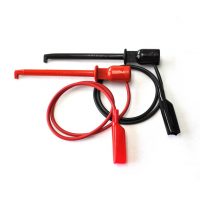
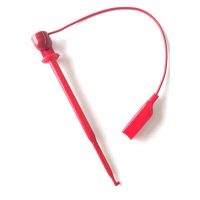
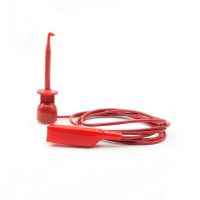
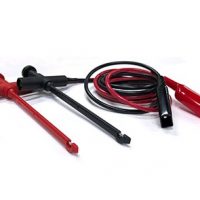
Alligator (Crocodile) Clips
Alligator clips, also referred to as crocodile clips in Europe, are spring metal electrical clips with long, serrated jaws. The primary use of alligator clips is to establish temporary electrical connections when clipped onto terminals and components. They get their name from the resemblance of their jaws to alligator or crocodile teeth / jaws.
Applications
- Electrical Circuits
- Automotive Analyzers
- Meter Testing Equipment
- Battery Testing
- Grounding Applications
- Welding / Earthing / Bonding
Insulation
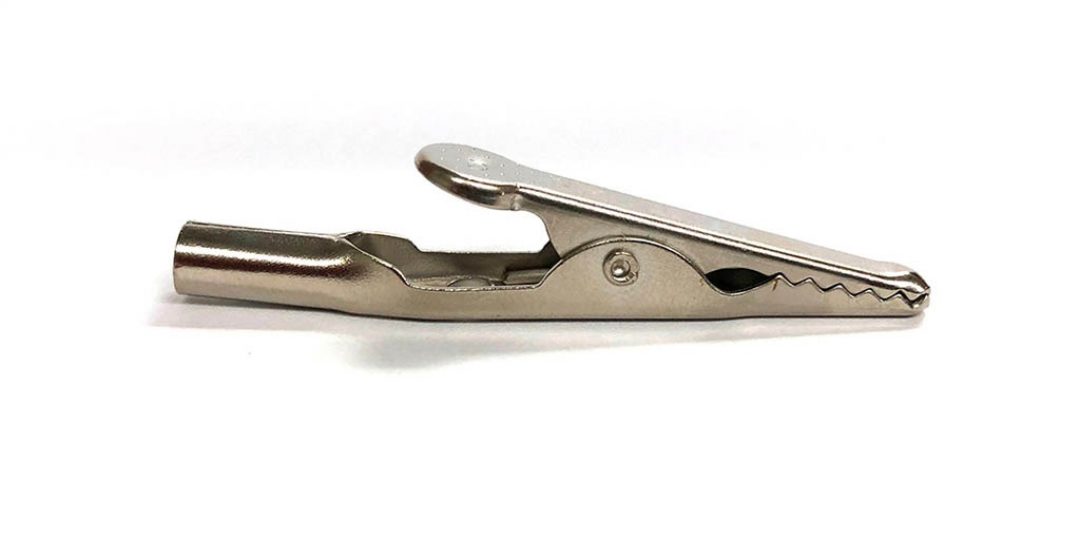
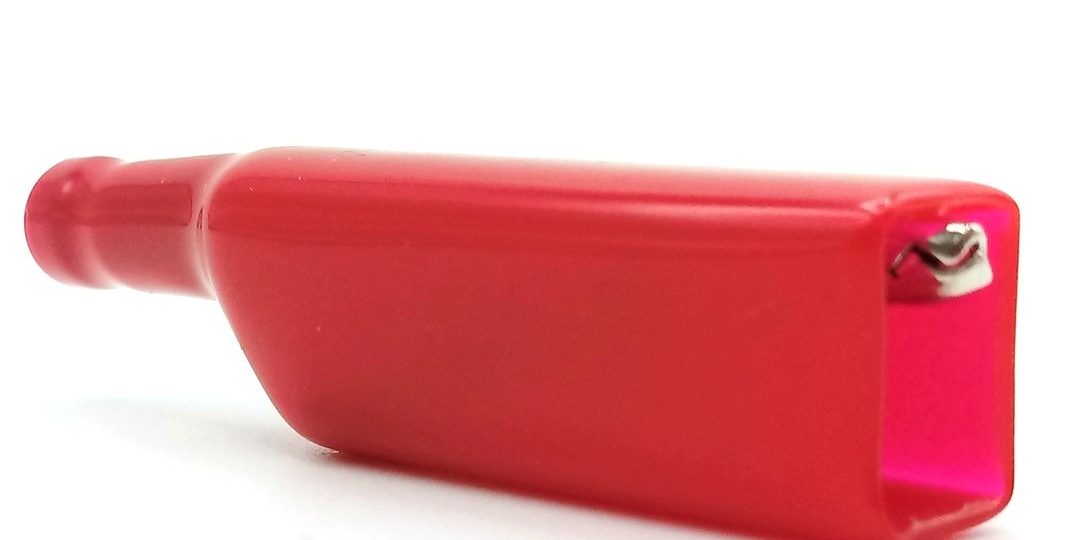
Uninsulated
Provide easier access to component connections but can lead to accidental short circuiting.
Insulated
Insulators, also called a “shroud” or “boot”, are coverings that slip onto a clip and prevent it from touching other metals. Insulated connectors shield the clip from contact with other metal to prevent accidental short circuiting.
Termination
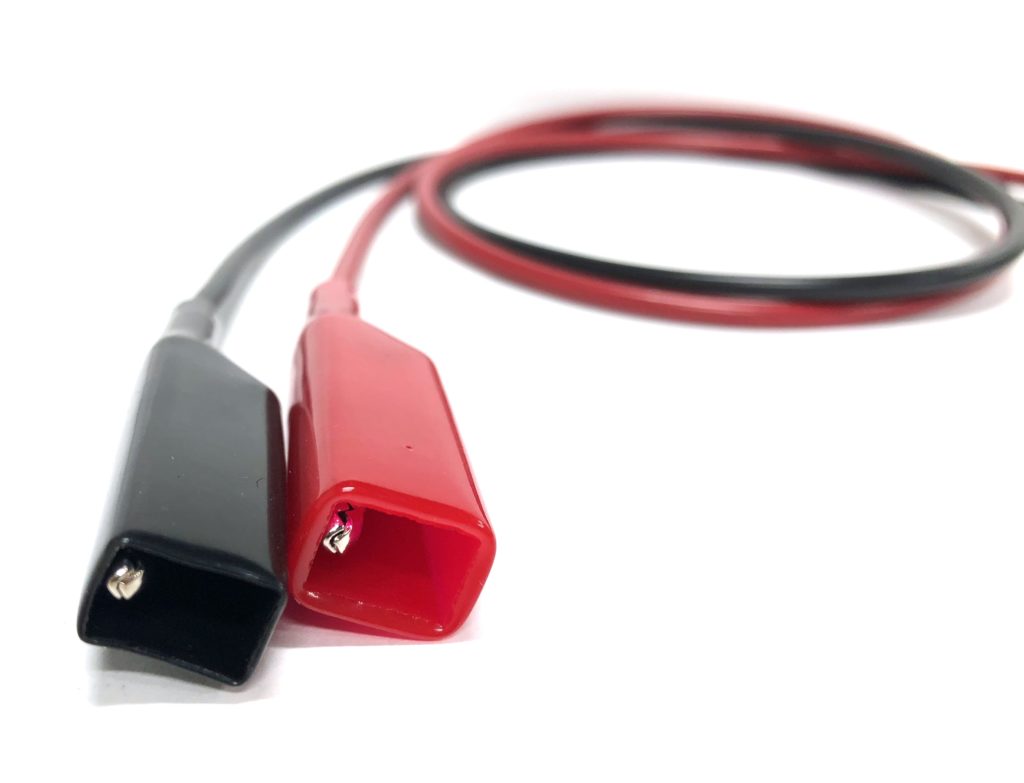
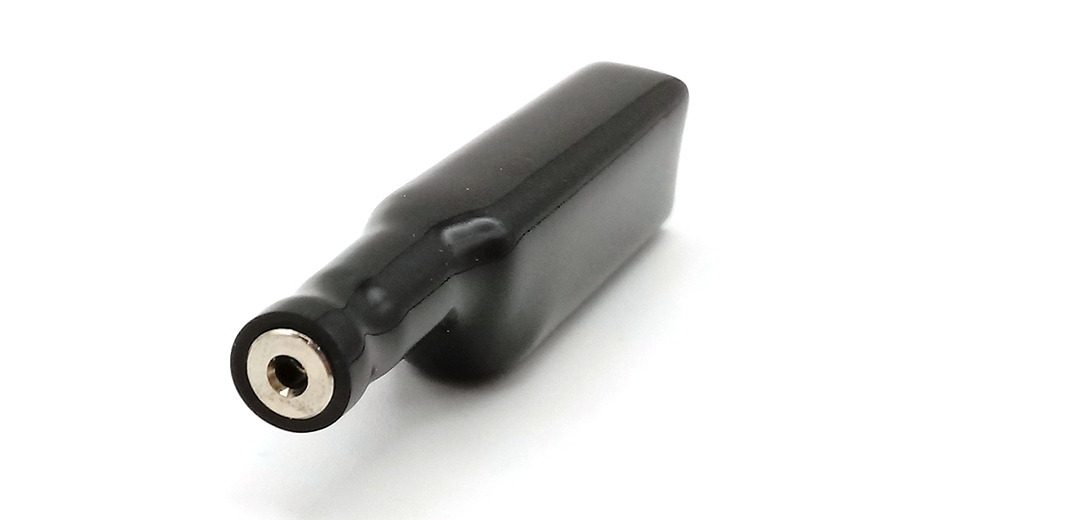
Test Lead & Cable Assemblies
Alligator clips may be crimped or soldered together with wire via the wire termination hole. Some alligator clips also use screws, referred to as bolt wire terminations, to secure wire to connectors. The most common alligator test lead combinations include jumpers and test hooks.
Adapters
Many alligator clips feature an additional contact on the rear of the connector for adaptable plug and play diagnostics in varying testing environments and components. Common adapter combinations include an alligator clip with either banana sockets, pin sockets, or female threaded sockets. A banana socket is the most common adapter combination for quick and easy hook-ups to digital multimeters via banana plug test leads.
Bed of Nails (Insulation-Piercing)
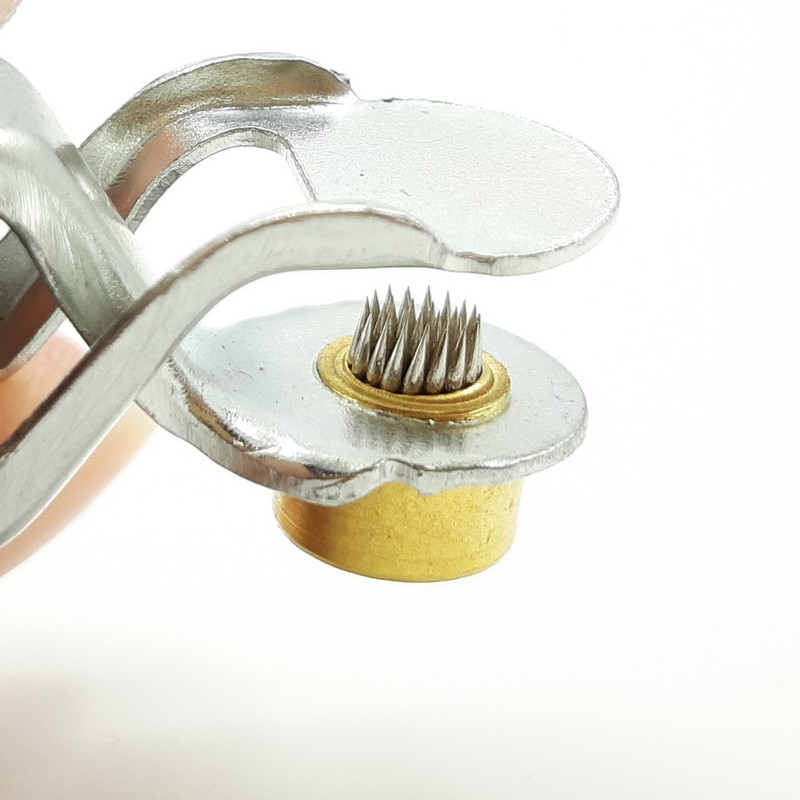
Multiple needles are often referred to as a bed of nails, needle clusters or nail bunch and can have a range of needle numbers. Needle clusters are recommended on smaller gauge cables, as it increases the reliability of making a positive connection since a single needle may miss the internal wire conductor. An insulation-piercing connector (also referred to as an insulation-piercing clip, insulation displacement connector, piercing probe, or wire tap) is often constructed as a standalone connector or adapter. The piercing connector has a needle or multiple needles that pierce the wire’s outer insulation jacket to access the wire’s internal (single or multi) conductor for testing. By activating the needle(s) upon wire contact, diagnostic testing is able to occur with an instant connection created for DMMs (digital multimeters), safety analyzers, circuits/boards, or other testing equipment.
This variation of an alligator clip has piercing spikes in the teeth to connect to both bare and insulated wires. The benefit is that they can be used on insulated wires without having to strip the insulation off, connecting anywhere along the wire. These type of clips are used mainly by the telephone industry as well as by anyone needing to take a measurement without stripping the wire insulation. Telecom clips are also called Popper clips.
Non-Invasive Testing
Wire Integrity Maintained
Hard to Reach Wires
Safer for Live Environments
Spring Activation
Center Squeeze / Center Spring Clips
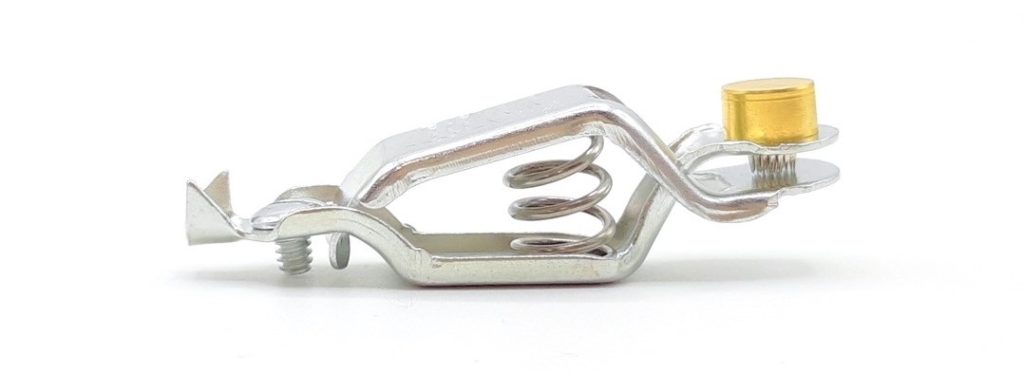
These versatile alligator clips preceeded modern-day alligator clip designs. They are referred to as Center Squeeze Clips or Center Spring Clips. This extra-heavy-duty test clip has a tight no-slip grip on wire for secure connections with a single compression spring that is more durable than standard springs.
These are used for a range of industries including automotive analyzers, meter testing equipment, battery testing, welding, and earthing, bonding, and grounding applications. Center Spring Clips use compression springs which are more durable and last longer than the torsion springs used in the alligator, plier, and telecom clips.
Comparison Chart
– Max Jaw Opening: 0.19 in (4.83 mm)
– Overall Length: 1.5 in (38.1 mm)
– Material: Nickel-Plated Steel
– Features: PVC Vinyl Insulation Boot
*9271 standalone clip has no insulation boot and 8017 only has nylon insulated socket
| |||||
Part # | 9271 & 9275 | 8048 | 8017 | 8015 | 8040 |
| |||||
Termination | 28-18 AWG Wire Solder/Crimp | 0.104 in (2.64 mm) Mini Banana Socket Nickel-Plated Brass | 0.163 in (4.14 mm) Std. Banana Socket Nickel-Plated Brass | 0.08 in (2.03 mm) Std. Pin Socket Nickel-Plated Brass | Female 6-32 Threaded Socket Nickel-Plated-Steel |
– Max Jaw Opening: 0.31 in (7.92 mm)
– Overall Length: 2 in (50.8 mm)
– Material: Nickel-Plated Steel
– Features: PVC Vinyl Insulation Boot
*9270 standalone clip has no insulation boot and 9288 only has tenite acetate insulated socket
– Max Jaw Opening: 1 in (25.4 mm)
– Termination: 0.163 in (4.14 mm) Standard Banana Socket
– Material: Nickel-Plated Steel
– Features: Double/Reinforced PVC Nylon Insulation, IEC 1010 Compliant
Part # | 9431 | 9432 | 9433 | 9468 |
Overall Length | 2.25 in (57.15 mm) | 3.3 in (83.82 mm) | 3.56 in (90.42 mm) | 3.2 in (81.28 mm) |
